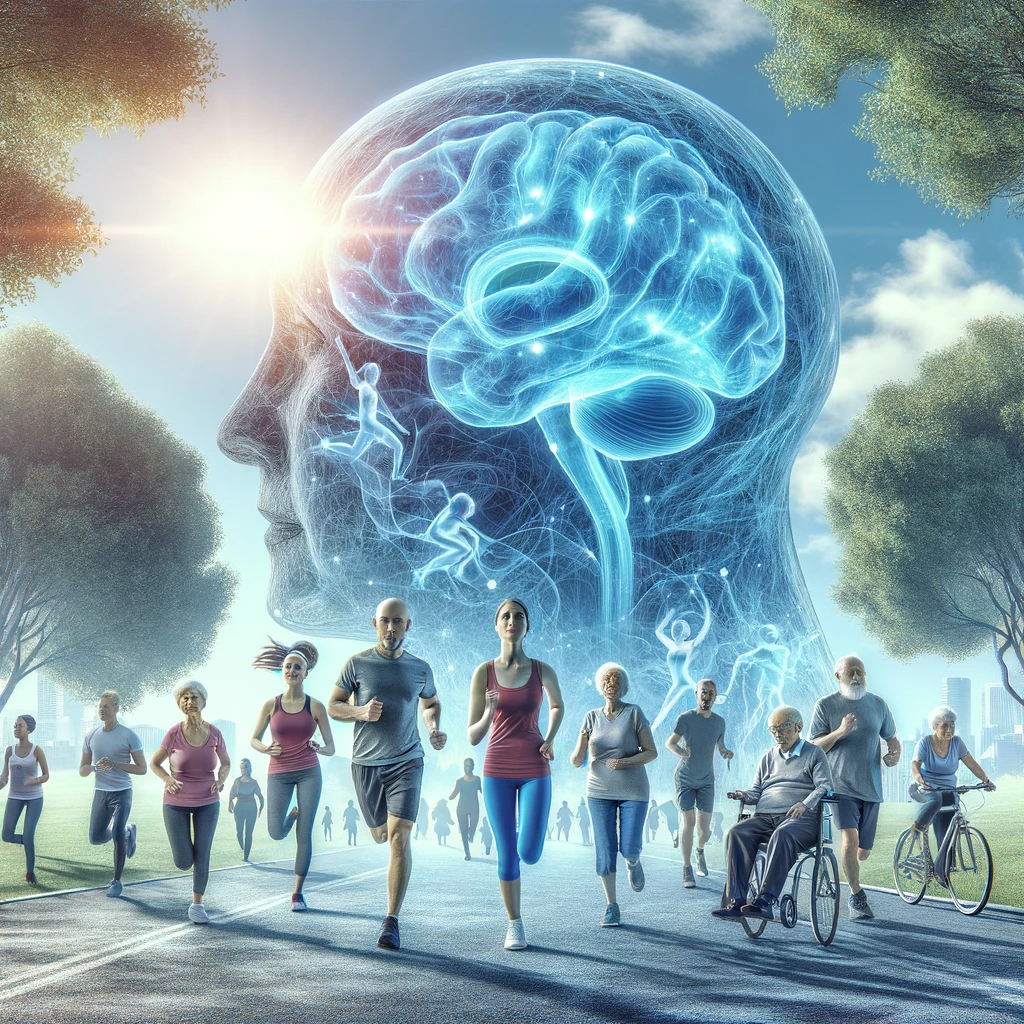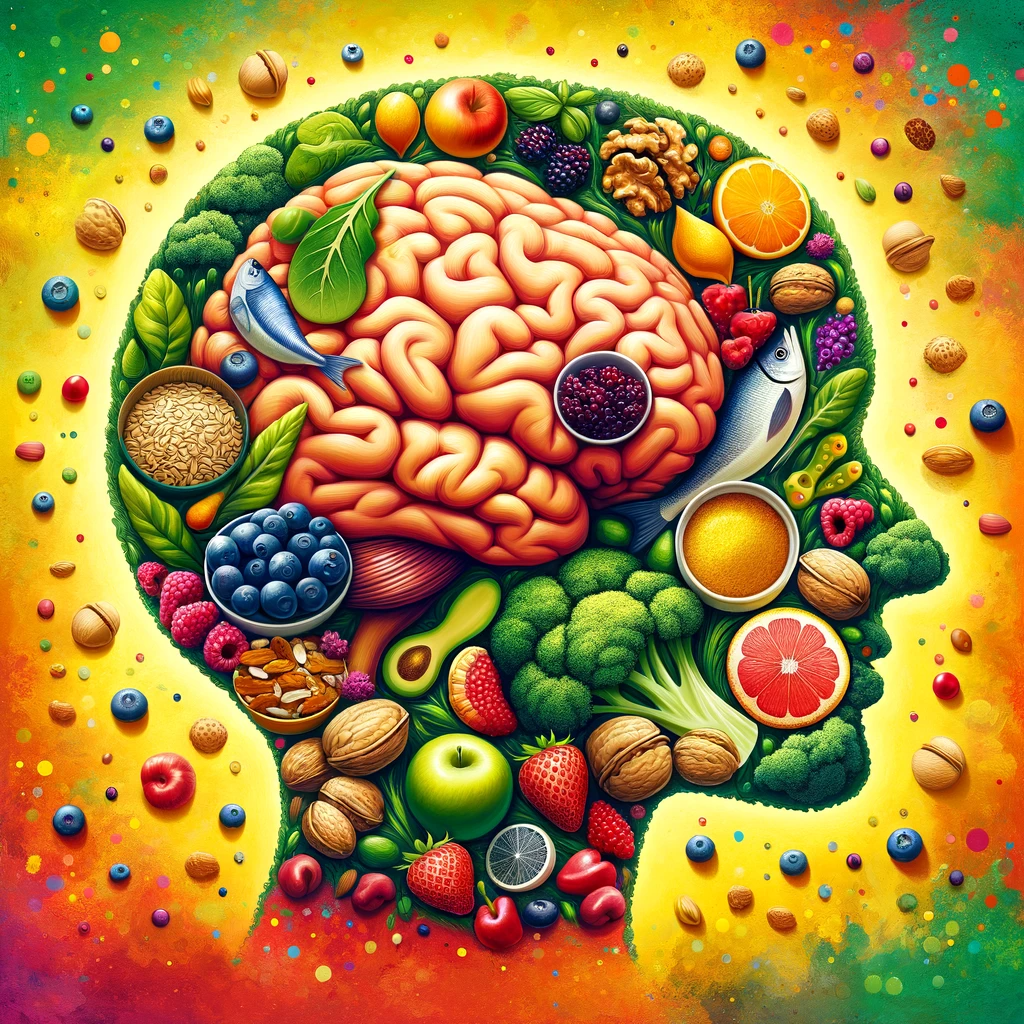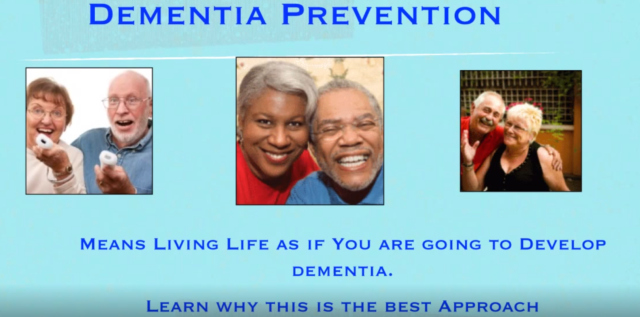Train Your Brain: Prevent Alzheimer's & Dementia with Brain Fitness Exercises
Discover the latest research on how brain training and cognitively stimulating activities can reduce the risk of developing Alzheimer's and dementia. Learn about the most effective activities and programs, and how to choose the right one for you.

What is Brain Training?
Brain training, also known as cognitive training, is a type of mental exercise designed to enhance cognitive skills and overall brain function. Much like how physical fitness is improved through regular exercise, brain training aims to keep your mind sharp and agile. This practice is based on the hypothesis tht cognitive abilities can be maintained or even improved by consistently challenging the brain.
Brain training activities come in various forms, including online games, cognitive tasks, and engaging in novel activities such as dance, art, and music. The goal is to stimulate the brain, promoting cognitive growth and leading to improved mental agility, memory, and overall brain health. By incorporating these activities into your routine, you can help ensure your brain remains resilient and capable throughout your life.
Benefits of Brain Training for Cognitive Skills
Engaging in brain training can yield numerous benefits for your cognitive skills. Research has shown that it can significantly improve memory, attention, processing speed, and executive function. These enhancements contribute to better mental agility, allowing you to switch between tasks more efficiently and effectively.
Moreover, brain training promotes cognitive reserve, a crucial factor in protecting against age-related cognitive decline and dementia. By building up this reserve, you create a buffer that helps maintain cognitive abilities even as you age. Incorporating brain training into your daily life not only boosts your cognitive skills but also supports a healthy brain, helping you stay mentally sharp and engaged.
How to Train Your Brain
Training your brain requires a consistent and challenging approach. Here are some tips to get started:
- Choose a Brain Training Program: Select a program tailored to your needs and goals. Look for one that offers a variety of exercises targeting different cognitive skills.
- Dedicate Time Daily: Set aside dedicated time each day to practice brain training exercises. Consistency is key to seeing improvements.
- Start Simple, Progress Gradually: Begin with simple exercises and gradually increase the difficulty level as you become more comfortable.
- Variety is Vital: Incorporate a range of exercises that target different cognitive skills, such as memory, attention, and processing speed.
- Make it a Habit: Integrate brain training into your daily routine to ensure it becomes a regular part of your life.
By following these steps, you can effectively train your brain, enhancing your cognitive skills and overall mental agility.
The Physical and Mental Connection
The connection between physical and mental health is profound. Regular physical exercise has been shown to improve cognitive function, including memory, attention, and processing speed. Physical activity promotes brain plasticity, allowing the brain to adapt and change in response to new experiences.
Conversely, engaging in mental exercise can positively impact physical health by reducing stress and anxiety, thereby promoting overall well-being. By incorporating both physical and mental exercises into your daily life, you can enhance your cognitive function and support your mental health, leading to a more balanced and healthy lifestyle.
Brain Training Exercises : Preventing Alzheimer's Disease?
Discover the latest research on how brain training and cognitively stimulating activities can reduce the risk of developing Alzheimer's and dementia. Learn about the most effective activities and programs, and how to choose the right one for you.
Brain Fitness Exercises: A Vital Component of Alzheimer's Disease Prevention
Can brain fitness exercises truly serve as a shield against the onset of Alzheimer's Disease and dementia? The pursuit of preventing or curing Alzheimer's has been a persistent quest since the disease was first identified. We've explored various avenues, from pharmaceuticals and supplements to traditional remedies like Chinese herbs and Ayurvedic medicine. And in recent times, Western science has turned its focus to brain training as a potential preventive measure.
The premise is simple: just as physical exercise fortifies the body against the effects of aging, brain exercises can bolster mental resilience. Remarkably, this approach has demonstrated the most promise in the last 12 years.
In 2002, a study published in the Journal of the American Medical Association (JAMA) indicated that individuals engaging in brain-stimulating activities experienced a 33% reduction in the risk of Alzheimer's disease. This finding was reinforced by a 2006 JAMA article, emphasizing the significant and lasting benefits of brain training.
Studies like the one published in The New England Journal of Medicine on "Leisure activities and the risk of dementia in the elderly" and research published in the Scientific Journal Neurology consistently support the notion that exercising the brain can reduce the risk of developing dementia.
An economical analysis featured in the British Journal of Psychiatry in 2006 further supported the cost-effectiveness of brain stimulation therapy in comparison to other treatments.
The research on brain fitness exercises continues to expand, but a weak link remains: the absence of a standardized definition for "cognitively stimulating activities." This poses a challenge in determining which activities are consistently effective across studies.
I often find myself providing caregivers with this information and addressing their subsequent question: "What activities should I engage in?" While I used to recommend learning a new language or tackling challenging brain games, it's crucial to understand that results are best achieved by engaging in new and demanding activities rather than ones in which you already excel.
Several programs, such as "Brain Training" Wii games, claim to offer similar benefits based on the research mentioned earlier, but independent research confirming their efficacy is scarce.
One exception is Dakim Brain Fitness Software, which stands out due to its unwavering commitment to the latest research on cognitively stimulating activities. Developed by Dan Michael, who cared for his father afflicted with Alzheimer's, Dakim's approach involved collaboration with renowned experts in dementia treatment and research, including Dr. Gary Small, Dr. Helena Chui, and Jeffery Cummings.
Their rigorous approach led to a formal research study presented at the Annual Meeting of the American Association for Geriatric Psychiatry in March 2010, further underscoring the effectiveness of brain training.
For those seeking insurance against Alzheimer's or an effective tool for family members in the early stages of the disease, Dakim Brain Fitness Software stands out. While any available product can provide some benefit, Dakim may prove to be the most worthwhile investment of your resources, time, and, most importantly, brainpower.
FAQ Section: Train Your Brain: Prevent Alzheimer's & Dementia with Brain Fitness Exercises
What is brain training, and how does it help cognitive function?
Brain training refers to activities and exercises designed to improve cognitive abilities, such as memory, focus, and problem-solving skills. By engaging in mental exercises regularly, you can enhance brain health, maintain mental agility, and potentially prevent cognitive decline.
Can brain training programs improve memory and mental well-being?
Yes, brain training programs focus on stimulating various cognitive abilities like working memory and processing speed. Numerous studies have shown these exercises can improve memory, reduce stress, and contribute to overall mental well-being.
How do mental exercises contribute to brain plasticity?
Mental exercises help create and strengthen neural pathways, supporting the brain's plasticity—its ability to adapt and change. Activities like solving jigsaw puzzles, learning a new language, or trying new dance moves can simultaneously engage different brain areas, boosting mental agility.
What are some examples of brain exercises for everyday life?
Everyday activities like visiting a new restaurant, practicing tai chi, solving brain games, or exploring a farmer's market can engage multiple cognitive abilities. These tasks encourage the brain to process new information and improve cognitive function in daily life.
Are brain exercises beneficial for older adults?
Absolutely. Activities that train the brain, such as creative thinking tasks, problem-solving, or picking up a new hobby, are particularly beneficial for older adults. They help maintain brain volume, improve processing speed, and keep the mind sharp as you age.
How can all your senses be engaged to train your brain?
Engaging all your senses—sight, sound, taste, touch, and smell—stimulates the brain in unique ways. For instance, cooking a new recipe, dancing to unfamiliar music, or exploring a vibrant farmer's market activates multiple neural pathways, enhancing cognitive function.
What role does stress reduction play in brain health?
Stress can negatively impact brain health and cognitive abilities. Mental exercises like tai chi, mindfulness meditation, or quiet time in a calm spot can reduce anxiety and stress, improving mental well-being and cognitive performance.
Can learning a new skill or hobby enhance brain function?
Learning a new skill, such as playing a musical instrument, practicing new dance moves, or taking up a challenging hobby, stimulates brain plasticity. This improves memory, problem-solving abilities, and overall cognitive function.
What is the connection between physical activity and brain health?
Physical exercises like tai chi or dance combine movement with mental focus, enhancing both physical and cognitive health. They contribute to better brain volume, processing speed, and mental agility, reducing the risk of dementia.
How does research support the benefits of brain training?
Research indicates that regular mental exercises improve memory, focus, and other cognitive skills. Studies highlight that activities like brain games, problem-solving tasks, and learning new languages can prevent cognitive decline and boost overall mental health.
What are the best brain training exercises for improving cognitive abilities?
Effective exercises include solving jigsaw puzzles, practicing creative thinking, engaging in problem-solving tasks, and playing brain games. These activities are designed to challenge the brain, improve processing speed, and maintain cognitive function.
Can trying new experiences help train your brain?
Yes, stepping out of your routine and experiencing new things—like visiting a new restaurant, picking up a new hobby, or traveling—stimulates the brain and improves its ability to adapt, process information, and create new neural pathways.
Why is practicing mental agility important as we age?
Practicing mental agility keeps the mind sharp and helps maintain cognitive function. Activities like learning a new language, solving challenging puzzles, or engaging in brain training programs can slow cognitive decline and enhance overall mental well-being.
How does brain training impact working memory and focus?
Brain training tasks specifically designed for working memory and focus help strengthen these cognitive skills. For example, solving puzzles or practicing tasks that require sustained attention can significantly enhance memory and concentration.
What role does creative thinking play in brain health?
Creative thinking activities encourage the brain to form new connections and neural pathways. Tasks like painting, writing, or brainstorming solutions to challenges stimulate multiple cognitive abilities, supporting long-term brain health.
Are there other factors that influence brain health beyond brain training?
Yes, factors like a healthy diet, regular physical activity, adequate sleep, and social interaction also play crucial roles in maintaining brain health. Combining brain exercises with these practices ensures better mental and physical well-being.
4o
Our Resources section can help you find the information and tools that you need. We have courses, videos, checklists, guidebooks, cheat sheets, how-to guides and more.
You can get started by clicking on the link below. We know that taking care of a loved one is hard work, but with our help you can get the support that you need.
Click here to go to Resources Section now!
You might also like this article:





















